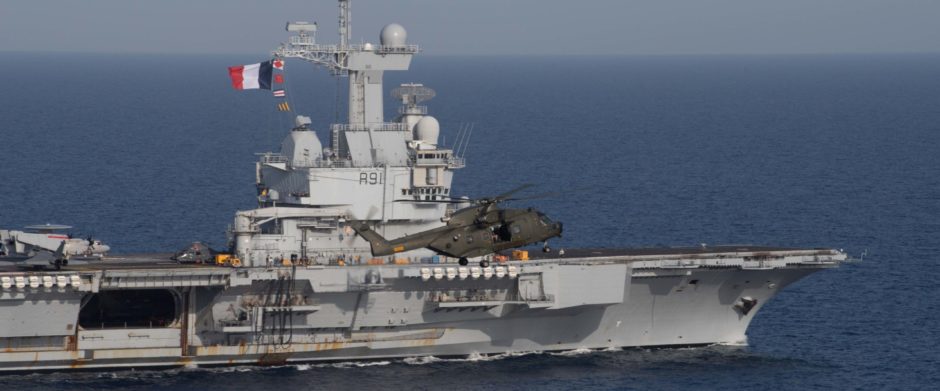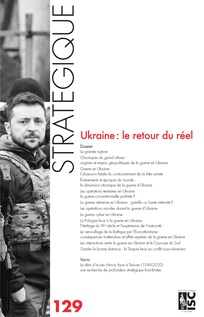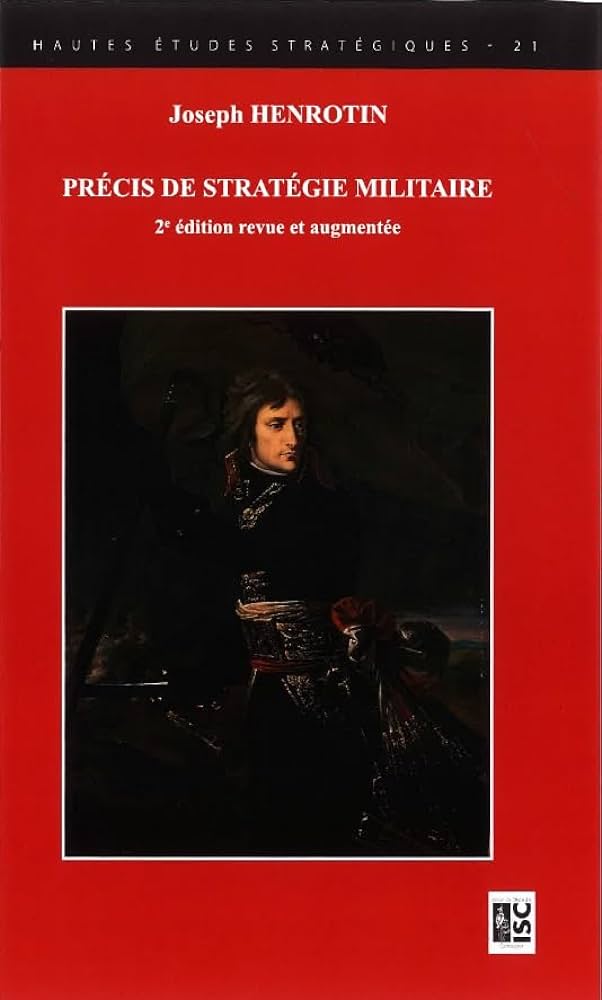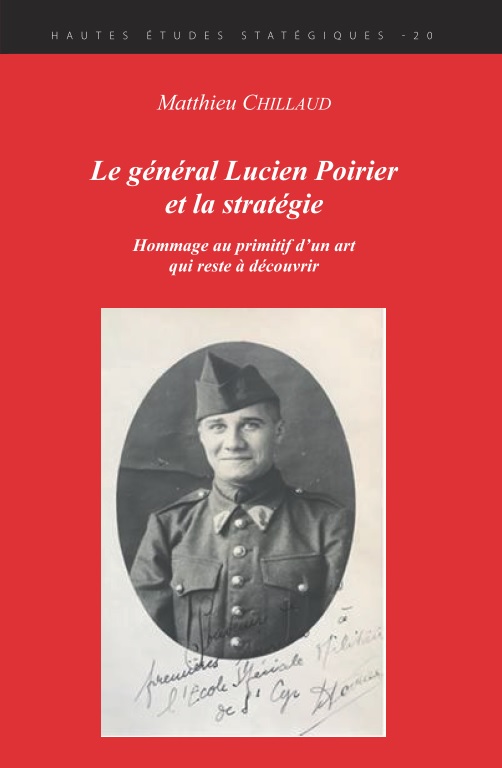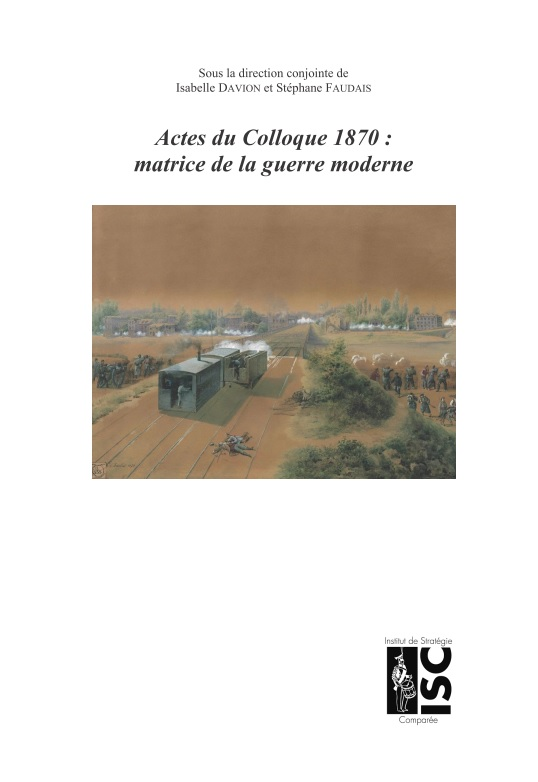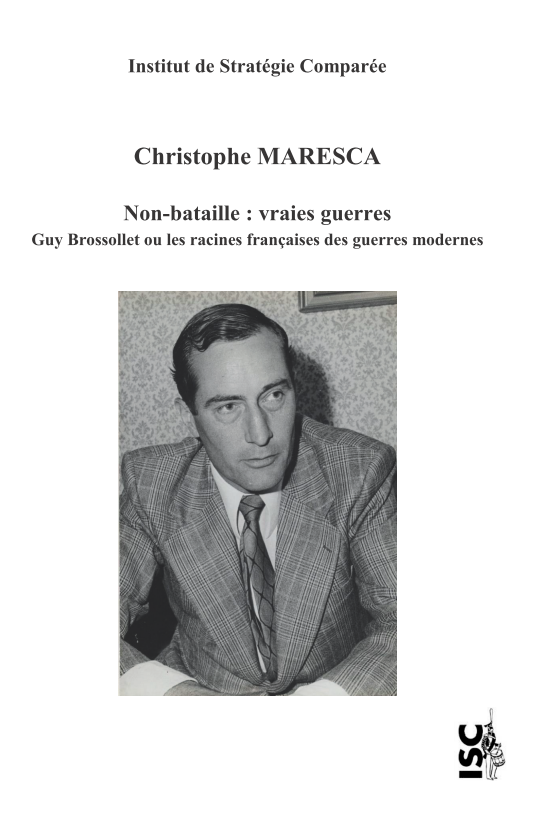I) Histoire
- Achard-James (colonel), “Le renseignement dans les opérations aéroportées”, Revue militaire d’information, n° 245, 25 janvier 1955.
- Alexander Martin S., “Did the Second Bureau Work 1919-1939 ?”, Intelligence and National Security, 1991-2.
- Alexander Martin S. (ed.), Knowing your Friends. Intelligence Inside Alliances and Coalitions from 1914 to the Cold War, Londres, Frank Cass, 1998.
- Andrew Christopher, Secret Service : The Making of the British Intelligence Community, Londres, Hodder & Stoughton, 1985.
- Andrew Christopher et Dilks David, Missing Dimension : Governments and Intelligence Communities in the Twentieth Century, Londres, MacMillan, 1984.
- Andrew Christopher et Gordievsky Oleg, Le KGB dans le monde 1917-1990, Paris, Fayard, 1990.
- Andrew Christopher, The Secret World: A History of Intelligence, Yale, Yale University Press, 2018.
- Austin N.J.E. et N.B. Rankov, Military and Political Intelligence in the Roman World from the Second Punic War to the Battle of Adrianople, Londres-New York, Routledge, 1995.
- Bath Alan Harris, Tracking the Axis Enemy. The Triumph of Anglo-American Naval Intelligence, Lawrence, Kansas University Press, 1998.
- Beach Jim, Haig’s Intelligence. GHQ and the German Army, 1916–1918, Cambridge University Press, Cambridge, 2015.
- Bell J. Bowyer et Whaley Baston, Cheating and Deception, New Brunswick-Londres, Transaction Publishers, 2e éd. 1991.
- Ben-Israël Isaac, Philosophie du renseignement. Logique et morale de l’espionnage, (réed.) Editions de l’éclat, Paris-Tel Aviv, 2004.
- Bennett Ralph, ULTRA and Mediterranean Strategy 1941-1945, Londres, Hamish Hamilton, 1989.
- Benson Robert Louis et Warne Michael, Venona : Soviet Espionage and the American Response 1939-1957, Washington, NSA-CIA, 1996.
- Bernis (commandant), Le Service de renseignements, Paris, Berger-Levrault, 1934.
- Betts Richard K. et Mahnken Thomas G. (eds.), Paradoxes of Strategic Intelligence, Frank Cass, London, 2003.
- Betts Richard K., Enemies of Intelligence. Knowledge and Power in American National Security, Columbia University Press, New York, 2007.
- Bloch Gilbert, “L’autre « Ultra » : « Magic », les décryptements américains pendant la seconde guerre mondiale”, Guerres mondiales et conflits contemporains, 164 et 165, octobre 1991 et janvier 1992.
- Bloch Gilbert, “l’affaire Ciceron : espionnage ou « intox » ?”, Guerres mondiales et conflits contemporains, 177, janvier 1995.
- Bloch Gilbert, Fortitude : la plus grande opération d’intoxication de la seconde guerre mondiale, Paris, L’Harmattan, 1999.
- Christides Vassilios, “Military Intelligence in Arabico-Byzantine Naval Warfare”, in collectif, Byzantium at Warfare (9th-12th), Athènes, Goulandri-Horn Foundation, International Symposium IV, 1997.
- Coutau-Bégarie Hervé, “Le renseignement dans la pensée militaire française”, Stratégique, 73, 1999-1.
- Dailey Brian D. et Parker Patrick J., Soviet Strategic Deception, Lexington, Lexington Books-Hoover Institution Press, 1985.
- Dorwart Jeffery M., The Office of Naval Intelligence. The Birth of America’s First Intelligence Agency, 1865-1918, Annapolis, Naval Institute Press, 1979 (à compléter par l’excellent article d’Angevine Robert G., “The Rise and Fall of the Office of Naval Intelligence 1882-1892. A Technological Perspective”, The Journal of Military History, 62, avril, 1998).
- Dorwart Jeffery M., Conflict of Duty. The US Navy’s Intelligence Dilemma 1919-1945, Annapolis, Naval Institute Press, 1983.
- Drea Edward J., MacArthur’s ULTRA. Codebreaking and the War against Japan, 1942-1945, Lawrence, Kansas University Press, 1991.
- Engels D.W., “Alexander’s Intelligence System”, The Classical Quarterly, 54, 1980.
- Esclaibes (lieutenant-colonel d’), Le renseignement vu sous l’angle du 2e bureau, Paris, École supérieure de guerre, 1949-1950.
- Faligot Roger et Kaufer Rémi, Histoire mondiale du renseignement, 2 vol., Paris, Laffont, 1993-1994.
- Ferris, John Robert, Intelligence and Strategy. Selected Essays, Londres, Routledge, 2005.
- Glantz David M., Soviet Military Deception in the Second World War, Londres, Frank Cass, 1989.
- Glantz David M., Soviet Military Intelligence in War, Londres, Frank Cass, 1990.
- Handel Michael I. (ed.), Strategic and Operational Deception in the Second World War, Londres, Frank Cass, 1987.
- Handel Michael I. (ed.), Leaders and Intelligence, Londres, Frank Cass, 1988.
- Handel Michael I. (ed.), War, Strategy and Intelligence, Londres, Frank Cass, 1989.
- Handel Michael I. (ed.), Intelligence and Military Operations, Londres, Frank Cass, 1990.
- Herman Michael, Intelligence Power in Peace and War, Cambridge, Cambridge University Press, 1996.
- Hinsley F.H. (ed.), British Intelligence in the Second World War, Londres, HMSO, 5 vol., 1979-1988.
- Holmes W.J., Double-Edged Secrets : U.S. Naval Intelligence Operations in the Pacific during World War II, Annapolis, Naval Institute Press, 1979.
- Kahn David, “Codebreaking in World Wars I and II ; The Major Successes and Failures, Their Causes and Their Effects”, Historical Journal,23, 1980.
- Kahn David, “The Intelligence Failure of Pearl Harbor”, Foreign Affairs,70, n° 5, hiver 1991-1992.
- Kam Ephraim, Surprise Attack : The Victim’s Perspective, Cambridge, Harvard University Press, 1988.
- Lacoste Pierre (dir.), Le Renseignement à la française, Paris, Économica, 1998 (actes du séminaire organisé pendant trois ans à l’Université de Marne-la-Vallée).
- Lastours Sophie de, La France gagne la guerre des codes secrets, Paris, Tallandier, 1998 (sur 1918).
- Lewal (général), Études de guerre. Tactique des renseignements, Paris, Librairie militaire dumaine, 2 vol., 1881.
- Lewin Ronald, The Other ULTRA. Codes, Cyphers and the Defeat of Japan, Londres, Hutchinson,
- Marchio James D., “Days of Future Past. Joint Intelligence in World War II”, Joint Forces Quarterly, printemps 1996.
- May Ernest R. (ed.), Knowing One’s Ennemies. Intelligence Assessment before the Two World Wars, Princeton, Princeton University Press, 1986.
- Mercier-Bernadet Fabienne (dir.), 1939-1945. La Guerre des intelligences, Panazol, Lavauzelle, 2002.
- Muir Malcolm, “Rearming in Vacuum : United States Navy Intelligence and the Japanese Capital Ship Threat 1936-1945”, The Journal of Military History, 54, octobre 1985.
- Overy Richard, “Strategic Intelligence and the Outbreak of the Second World War”, War in History, 5-4, novembre 1998.
- Paddock Alfred H., U.S. Army Special Warfare. Its Origins (Revised Edition), Lawrence, Kansas University Press, 2002.
- Parker Geoffrey, “Philipp II, knowledge and Power”, Military History Quarterly, 11-1, automne 1998.
- Popplewell Richard, Intelligence and Imperial Defence. British Intelligence and the Defence of the Indian Empire 1904-1924, Londres-Portland, Frank Cass, 1995.
- Porch Douglas, Histoire des services secrets français, 2 vol., Paris, Albin Michel, 1997.
- Richelson Jeffrey T. et Ball Desmond, The Ties That Bind, Boston, George Allen & Unwin, 1985 (sur les relations entre les services américains et ceux d’Australie et de Nouvelle-Zélande).
- Richelson Jeffrey T., A Century of Spies : Intelligence in the Twentieth Century, Oxford-New York, Oxford University Press, 1995.
- Sawyer Ralph D., The Tao of the Spycraft. Intelligence Theory and Practice in Traditional China, Boulder-San Francisco-Londres, Westview, 1998.
- Sheffy Yigal, British military Intelligence in the palestine Campaign 1914-1918, Londres-Portland, Frank Cass, 1998.
- Soutou Georges-Henri, Frémeaux Jacques, Forcade Olivier (dir.), L’Exploitation du renseignement en Europe et aux États-Unis des années 1930 aux années 1960, Paris, ISC-CFHM-Économica, Hautes Études militaires 15, 2001.
- Towle Philip (ed.), Estimating Foreign Military Power, Londres, Croom Helm, 1982.
- Troy Thomas F., Donovan and the CIA. A History of the Establishment of the Central Intelligence Agency, Frederick, Aletheia Books, 1981.
- Winton John, ULTRA at Sea, Londres, Leo Cooper, 1988.
- Winton John, ULTRA in the Pacific. How Breaking Japanese Codes & Cyphers Affected Naval Operations Against Japan 1941-1945, Londres, Leo Cooper, 1993.
- Wohlstetter Roberta, Pearl Harbor n’était pas possible, Paris, Stock, 1965.
II) Problèmes contemporains
- Andrew Christopher, For the President’s Eyes Only, Londres, Harper & Collins, 1995.
- Baud Jacques, Encyclopédie du renseignement et des services secrets, Paris, Lavauzelle, 1997.
- Berkowitz Bruce D. et Goodman Allan E., Strategic Intelligence for American National Security, Princeton, Princeton University Press, 1991.
- Burrows William E., Deep Black : Space Espionage and National Security, New York, Random House, 1986.
- Chopin Olivier et Benjamin Oudet, Renseignement et sécurité, Armand Colin, Paris, 2016.
- Cormac Rory, Disrupt and Deny. Spies, Special Forces, and the Secret Pursuit of British Foreign Policy, Oxford, Oxford University Press, 2018.
- Dewerpe Alain, Une anthropologie du secret d’État contemporain, Paris, Gallimard, Bibliothèque des histoires, 1994.
- Dover Robert, Goodman Michael et Hillebrand Claudia (Eds.), Routledge Companion to Intelligence Studies, Routledge, Londres, 2013.
- Duyvesteyn, Isabelle (ed.), Intelligence and Strategic Culture, Londres, Routledge, 2017.
- Freedman Lawrence, S. Intelligence and the Soviet Strategic Threat, Londres, MacMillan, 2e éd. 1986 (s’arrête à 1977, avec une préface pour la nouvelle édition).
- Fuller Christopher J., See It/Shoot It. The Secret History of the CIA’s Lethal Drone Program, Yale University Press, New Haven, 2017.
- Gill Peter, Stephen Marrin, Mark (Eds.), Developing Intelligence Theory. New Challenges and Competing Perspectives, London, Routledge, 2018.
- Golnik Adam (Ed.), Intelligence Studies. Conducting Terrorism Field Research, Routledge, Londres, 2013.
- Hannas William C., Mulvenon James et Pugliesi Anna B. (eds.), Chinese Industrial Espionnage. Technology Acquisition an Military Modernization, Routledge, London, 2013.Herman Michael, Intelligence Services in the Information Age, Londres, Frank Cass, 2001.
- Herman Michael, Intelligence Services in the Information Age, Londres, Frank Cass, 2001.
- Lacoste Pierre (amiral), ”Une nouvelle stratégie pour le renseignement ?”, Politique étrangère, 1997-1.
- Laqueur, Walter, The Uses and Limits of Intelligence, Londres, Routledge, 1993.
- Lowenthal Mark M., Intelligence. From Secrets to Policy, 7eme Ed., Londres, Sage, 2017.
- Lowenthal Mark M., The Future of Intelligence, Cambridge, Polity, 2017.
- Mintz Alex, Tyson Chatagnier et Yair Samban (Eds.), Terrorist Decision-Making. A Leader-Centric Approach, Routledge, Londres, 2019.
- Moutouh Hughes et Jérôme Poirot, Dictionnaire du renseignement, Paris, Perrin, 2018.
- Sheldon-Duplaix Alexandre et Huchthausen Peter, Guerre froide et espionnage naval, Nouveau Monde Editions, Paris, 2013.
- Stephen Marrin, Improving Intelligence Analysis. Bridging the Gap Between Scholarship and Practice, Routledge, London, 2012.
- Pfaltzgraff Jr Robert L., Ra’anan Uri et Milberg Warren (eds), Intelligence Policy and National Security, Londres, Macmillan, 1981.
- Prados John, The Soviet Estimate: U.S. Intelligence Analysis and Russian Military Strength, New York, Dial Press, 1982.
- Pythian Mark (Ed.), Understanding the Intelligence Cycle, Routledge, London, 2013
- Richelson Jeffrey T., American Espionage and the Soviet Target, New York, Morrow, 1987.
- Richelson Jeffrey T., America’s Secret Eyes in Space : The U.S. Keyhole Spy Satellite Program, New York, Harper & Row, 1990.
- Røseth Tom, Weaver, John Michael (Eds.), Intelligence Relations in the 21st Century, Springer, Londres, 2020.
- Shulman Seth, “Code Name : Corona”, Technology Review, octobre 1996.
- Shulsky Abram N., Silent Warfare : Understanding the World of Intelligence, Washington, Brassey’s 1991.
- Sirrs Owen L., Pakistan’s Inter-Services Intelligence Directorate. Covert Action and Internal Operations, Londres, Routledge, 2018.
- Spielmann Karl, The Logic of Intelligence Analysis. Why Hypothesis Testing Matters, Londres, Routedge, 2018.
- Stewart Brian et Samantha Newbery, Why Spy? The Art of Intelligence, Londres, Hurst, 2015.
- Wilkinson Mark, Before Intelligence Failed, Hurst, Londres, 2013.
- Ziegler Charles A. et David Jacobson, Spying without Spies : Origins of America’s Secret Nuclear Surveillance System, Westport, Conn. : Praeger, 1995.
III) Opérations spéciales
- Arquilla John, From Troy to Entebbe: Special Operations in Ancient and Modern Times, University Press of America, Lanham, 1996.
- Carson Austin, Secret Wars: Covert Conflicts in International Politics, Princeton University Press, Princeton, 2018.
- Coll Steve, Directorate S: The C.I.A and America’s Secret Wars in Afghanistan and Pakistan, Allen Lane, 2018.
- Corke Sarah-Jane, US Covert Operations and Cold War Strategy. Truman, Secret Warfare and the CIA, 1945-53, Routledge, London, 2015.
- Cormac Rory, Disrupt and Deny. Spies, Special Forces, and the Secret Pursuit of British Foreign Policy, Oxford, Oxford University Press, 2018.
- Emerson Steven, Les guerriers de l’ombre, Paris, Économica, 1991.
- Eriksson Gunilla, Pettersson, Ulrica (Eds.), Special Operations from a Small State Perspective. Future Security Challenges, Springer, Londres, 2017.
- Finlan Alastair, Special Forces, Strategy and the War on Terror. Warfare by Other Means, Routledge, Londres, 2008.
- Glicken Turnley Jessica, Michael Kobi et Ben-Ari Eyal (eds.), Special Operations Forces in the 21st Century. Perspectives from the Social Sciences, Londres, Routledge, 2017
- Haas Michael E. (colonel), Apollo’s Warriors : United States Air Force Special Operations during the Cold War, Maxwell AFB, Air University Press, 1997.
- Kiras James T., Special Operations and Strategy: From World War II to the War on Terrorism, Routledge, Londres, 2006.
- Krishnan Armin, Why Paramilitary Operations Fail, Springer, Londres, 2018.
- Marquis Susan L., Unconventional Warfare: Rebuilding US Special Operations Forces, Brookings, Washington, 1997.
- Marsh Christopher, James D. Kiras, et Patricia J. Blocksome (Eds.), Special Operations: Out of the Shadows, Lynne Riener, Boulder, 2019.
- Moore Bernard Victor (major), The Secret Air War Over France : USAAF Special Operations Units in the French Campaign of 1944, Maxwell AFB, Air University Press, 1993.
- O’Rourke Lindsey A., Covert Regime Change: America’s Secret Cold War, Cornell University Press, Ithaca, 2018.
- Sirrs Owen L. (ed.), Pakistan’s Inter-Services Intelligence Directorate. Covert Action and Internal Operations, Routledge, London, 2016.
IV) PSYOPS, opérations médiatiques/d’influence
- Badsey Stephen (ed.), The Media and International Security, Londres-Portland, Frank Cass, 2000.
- Barbier Mary Kathrin, D-Day Deception and the Normandy Invasion, Wesport, Praeger Security International, 2007.
- Bennett Daniel, Digital Media and Reporting Conflict. Blogging and the BBC Coverage of the War on Terror, Coll. “Routledge Research in Journalism”, London, 2013.
- Bolt Neville, The Violent Image. Insurgent Propaganda and the New Revolutionaries, London, Hurst, 2020.
- Chaliand Gérard (dir.), La Persuasion de masse. Guerre psychologique, guerre médiatique, Paris, Laffont, 1992.
- Coutau-Bégarie Hervé (dir.), Les médias et la guerre, Coll. « Bibliothèque stratégique », Economica, Paris, 2005.
- d’Hughes Philippe et Coutau-Bégarie Hervé (dir.), Le cinéma et la guerre, Coll. « Bibliothèque stratégique », Economica, Paris, 2005.
- de Franco Chiara, Media Power and The Transformation of War, Palgrave MacMillan, Londres, 2012.
- Géré François, La Guerre psychologique, Paris, ISC-Économica, Bibliothèque stratégique, 1997.
- Géré François, Sous l’empire de la désinformation – La parole masquée, Paris, Economica, 2018.
- Goldstein Frank L. (ed.), Psychological Operations. Principles and Case Studies, Maxwell, Air University Press, 1996.
- Gregor, Miloš, Mlejnková, Petra (Eds.), Challenging Online Propaganda and Disinformation in the 21st Century, Springer, Londres, 2021.
- Holt Thaddeus, The Deceivers. Allied Military Deception in the Second World War, New York, Scribner, 2004.
- Letonturier Éric, Guerre, armée et communication, CNRS Éditions, Paris, 2017.
- Matby Sarah, Military Media Management, Routledge, Londres, 2013.
- Paddock Troy, World War I and Propaganda, Leiden, Brill, 2012.
- Piers Robinson, Philip Seib, Romy Frohlich (Eds.), Routledge Handbook of Media, Conflict and Security, Routledge, London, 2016.
- Royal Benoît, La guerre pour l’opinion publique, Coll. « Guerres et opinions », Economica, Paris, 2012.
- Schleifer, R., Psychological Warfare in the Arab-Israeli Conflict, Springer, Londres, 2014.
- Shavit Michal, Media Strategy and Military Operations in the 21st Century. Mediatizing the Israel Defence Forces, Routledge, London, 2016.
